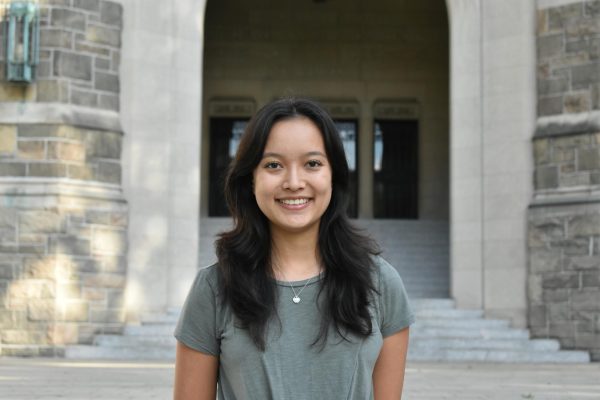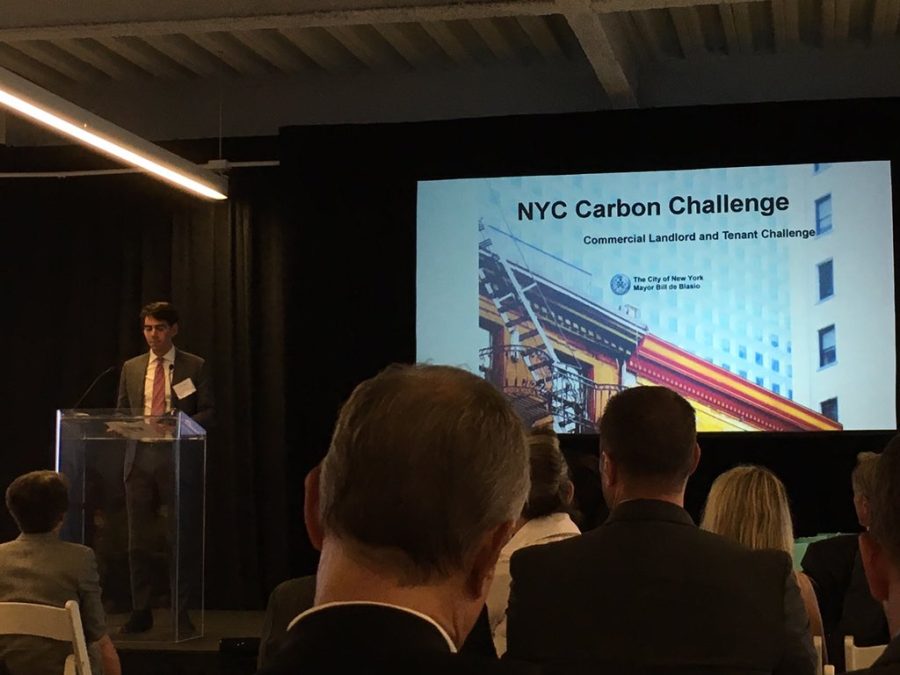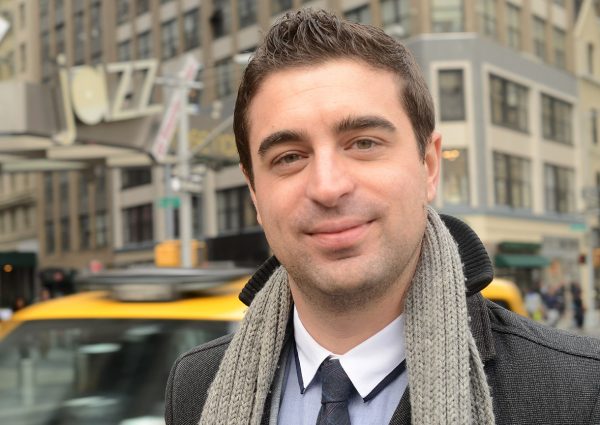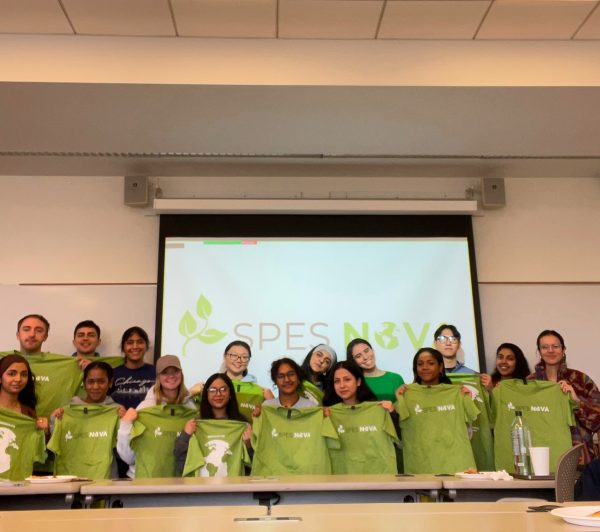Fordham Introduces Environmental Action Plan: Laudato Si’
On April 16, President Tania Tetlow sent an email to the Fordham community introducing Fordham’s environmental action plan: Laudato Si’. It is named after Pope Francis’s 2015 encyclical, “Laudato Si’: On Care for Our Common Home,” where he urged people to take action for the planet. The action plan is a guide to a seven-year transformation process for Fordham’s campuses.
In her email, Tetlow explained that the plan is only the beginning. “We’re taking a deeper look at how we use single-use plastics and learning how to compost our food waste. We’re cleaning and preserving our parks in the Bronx. And this is only the beginning. As we continue this journey, we know that our best and most powerful resource is you. Join us as we make a difference—not just for Fordham, but for the world,” wrote Tetlow.
The committee that wrote the environmental action plan included different people from across the Fordham community, including Chair Julie Gafney, Amy Aronson, Eric Chen, Gerardo Galiano, Rachelle Green, Judith Jones; Debra M. McPhee, Russell Pearce, Jose-Luis Salazar, S.J. and Christiana Zenner.
In the mission statement, it states, “We cannot leverage the powerful intellectual force of our University for public good without working on climate justice and environmental justice across disciplines and schools. We cannot consider ourselves a world-class institution unless we demonstrate a commitment to sustainability in our day-to-day practices, our infrastructure, and our physical plant.”
It also states that the goal is to “continue to work across the University to unite sometimes-siloed or disparate work in teaching, learning, research, student affairs, finance and strategic sourcing, human resources, and infrastructure and facilities under one prevailing vision of environmental and climate justice.”
In addition, it has 10 different action steps – let go of the old world; face your grief but hold a vision for the future; defend the truth; see yourself as a citizen, not a consumer; move beyond fossil fuels and invest in a clean economy; reforest the earth; use technology responsibly; build gender and racial equality; advance and grow civic engagement; and finally, ground-in ecological spiritual practices.
On the website for the action plan, there is also an outline of different steps that Fordham has already taken over the past two decades. In 2007, Fordham accepted the NYC Carbon Challenge, which is an initiative between the Mayor’s Office of Climate & Environmental Justice and different leaders in the private, institutional and non-profit sectors who have committed to decarbonizing their properties. In 2015, Fordham recycled 208,000 lbs of waste and 90,000 lbs during construction. In 2017, their pledge extended to include a 40% cut in greenhouse gas emissions by 2030, and in 2018, an entire Ram Van fleet ran on biodiesel. In 2019, solar arrays offset 20% of Fordham’s energy usage (37% of Fordham’s Prep). Finally, in 2022, the Laudato Si’ Steering Committee began creating the seven-year action plan.
In addition to action, there have been multiple events to raise awareness. On March 26, Fordham hosted Caring for Our Common Home – an environmental justice leadership workshop. Most recently, Fordham hosted A Summit on Community Power and Just Climate Actions on April 19 on Walsh Library Lawn. The event was a chance to discuss the collective power of communities in transforming just climate actions.
Marc Conte, Ph.D., professor of economics, was one of the speakers at the event, and he is part of the newly-formed Sustainability Council at Fordham. The council did not make the action plan, but they were formed to guide the university in its efforts to increase its focus on climate and environmental issues.
Conte explained that Fordham is able to provide information on environmental issues with research conducted by Fordham faculty.
“The impacts of climate change on human well-being are challenging to mitigate for a number of reasons. One key challenge is that the impacts may not be immediately obvious to communities (e.g., increased risk of more extreme tropical cyclones, which occur sporadically),” said Conte. “As an institution of higher learning, Fordham has an opportunity to provide critical information to community members, policymakers, and residents of the five boroughs of New York City that allows them to more clearly understand their exposure to climate risks. This information comes from the incredible research conducted by Fordham’s faculty and their colleagues at other institutions.”
Conte added: “Fordham should increase its support of faculty research to ensure that the third element of the action plan (“defend the truth”) is achieved and surpassed. While I think that each action item is important, I believe that it is critical for Fordham to commit meaningful resources to this component of the plan. In doing so, Fordham can foster closer relationships with the broader community in the Bronx and New York City that will drive achievement of related goals with regard to increasing Fordham’s contribution to civic engagement (the 9th action) and communicating the terrific research being conducted on the Fordham campus (the 1st action) to help us understand and respond to the challenge of climate change and to mediate the distribution of climate damages across members of society.”
Ultimately, Conte explained that in the context of climate change that uncertainty is heightened given the sheer scale of the greenhouse gas emissions and their impacts and the pace of technological improvements, but there are different things, such as the Inflation Reduction Act, which can unlock money to support additional research and development in areas. Conte explained that because of this, decision-making on the topic must be forward-looking and pliable, which is not always easy at institutions.
Overall, Conte said, “As a faculty member on the newly-formed Sustainability Council, which will make recommendations to the University about how best to achieve and surpass its targets under this action plan, I will offer my expertise and work with my fellow council members to suggest paths forward that could establish Fordham as a leading institution of higher education with regard to the pursuit of climate justice.”

Emma Kim is a junior from Pittsburgh. She is double majoring in economics and English. She started as a contributing writer for news in her freshman year...











































































































































































































